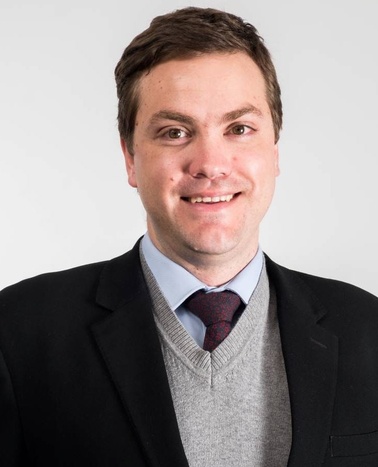
Daniel Raath
I was born and raised in Johannesburg, South Africa. Both my parents are lawyers, so legal thinking and robust debate was instilled in my family home from an early age. After finishing school, I lived in the UK for two years before I returned to South Africa to complete my LL.B. degree at the University of Johannesburg.
I’m currently living in Johannesburg with my wife and daughter, practicing as a partner with a commercial law firm in Sandton. My focus is on civil litigation, commercial drafting and legal advice in the fields of company and commercial law. I also have an LL.M. from the University of the Witwatersrand, and I’m a qualified solicitor in England and Wales.
I am particularly interested in the intersection of law and technology—specifically, the ability of technology to increase the efficiency and accuracy with which legal services are rendered. I believe that it has become important to harness the potential of technology so that high quality legal services can be made accessible to more people.

"Shifting my mindset from the traditional way of doing things in legal practice to actively seeking out improvements and opportunities by using technology in law. There is such a lot out there that is new and exciting in legal tech, and we are still very much at the bottom of the curve. A world of opportunity awaits if we are willing to grasp it."
Why did you decide to do a Master in Legal Tech?
I have always had an interest in technology and the potential it has to improve people’s lives rapidly and globally. I however wanted to further my interest by undertaking a program that focused not only on technology, but specifically on the intersection of law and technology, so that I could apply what I learned to my practice and the legal work I undertake on a daily basis, and think of new ways to manage legal services. The Master in Legal Tech ticked all these boxes.
How has completing the Master benefited you in your professional career?
I have started to implement legal tech solutions in my practice, such as using e-discovery in cases that can benefit from it (which is still relatively new in South Africa), introducing e-consultations for clients and counsel, as well as exploring tech solutions that can increase the efficiency of our day-to-day legal workflow. I have also presented seminars to corporate clients on the topic of legal tech and have started looking at business opportunities in the legal sector using tech platforms, which would be particularly useful in a country like South Africa.
How were the on campus experiences in Madrid, Tel Aviv and Silicon Valley? Which was your favorite one? Why?
The campus experiences were the highlight of our course. Firstly, they provided an ideal opportunity to learn from and bond with our cohort, who were all experienced senior lawyers as well as wonderful people. Secondly, it was fantastic to soak up the atmosphere of all three destinations we visited. Madrid is a cosmopolitan world city steeped in history and art, Silicon Valley (and in particular Stanford University) inspires innovation and groundbreaking thinking, and Tel Aviv has a pulse and energy to it that is difficult to describe. Finally, it was very valuable to completely break away from our day-to-day lives and focus only on legal tech and innovation for extended periods. For many of us, the on campus sessions were opportunities for gaining perspective and fostering innovative thinking, without the usual working day distractions.
My favorite residential period was in Tel Aviv. It is a unique city to explore, and I was amazed at the constant focus on innovation and the creative drive for world leading technologies that permeates the legal sector in the city.
Could you tell us more about your experience participating in the challenges during the master’s?
I thought the challenges were an insightful and hands-on way to get lawyers to engage with technology on a practical level. For many lawyers, technology is seen as an impenetrable science that we can use, but rarely understand. The challenges—in particular building a chatbot with Santander, training machine learning algorithms with Google and coding smart contracts at a basic level—gave us a look behind the veil of technology. These exercises truly helped us to understand the building blocks of technology in a real-world manner.
How was the experience of doing a master’s in a format that combines both online and on-campus learning?
I thought it was ideal. We had the benefit of contact classes and in-depth interaction with our lecturers and classmates during the on-campus periods, whilst being able to continue our studies uninterrupted in an online format during the rest of the year.
The Blended format means that those who are unable to take a year off from their career can still take part in the program. In the case of our cohort, this attracted a more experienced and seasoned group of lawyers, therefore contributing to the program overall.
How was your experience at IE?
I found it to be a valuable experience. One element I thought was particularly positive was that, because IE Law School and IE Business School are very integrated, you are not only undertaking legal studies but also developing an interdisciplinary perspective. Throughout our course, there was a constant focus on thinking in an innovative, business-minded way, as well as looking for opportunities in the legal sector through the use of technology. In other words, we enjoyed the benefit of applying business-school thinking to the field of law.
What is the most valuable thing you took away from your time at IE Law School?
For me, it was shifting my mindset from the traditional way of doing things in legal practice to actively seeking out improvements and opportunities by using technology in law. There is such a lot out there that is new and exciting in legal tech, and we are still very much at the bottom of the curve. A world of opportunity awaits if we are willing to grasp it.
WANT TO RECEIVE MORE INFORMATION ABOUT THIS PROGRAM?
WANT TO RECEIVE MORE INFORMATION ABOUT THIS PROGRAM?